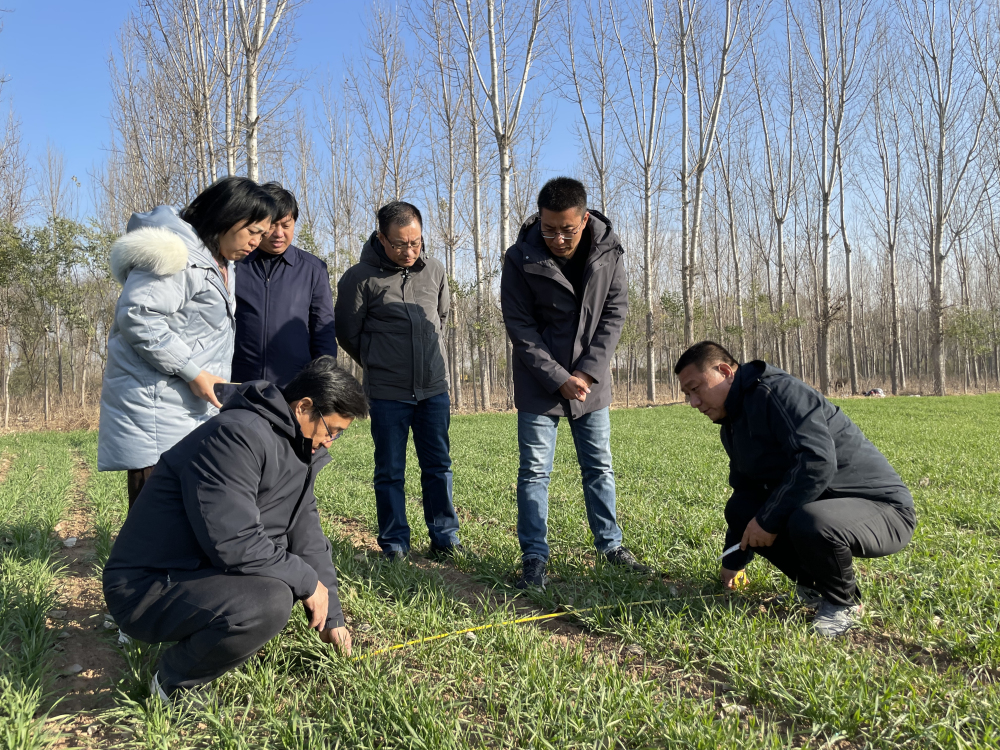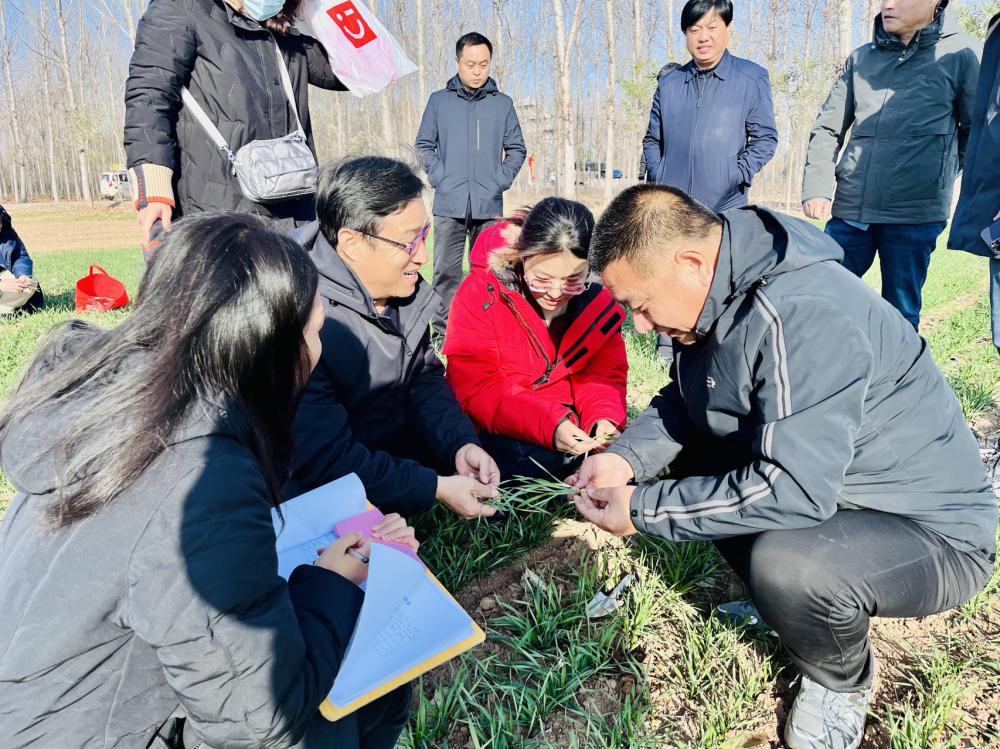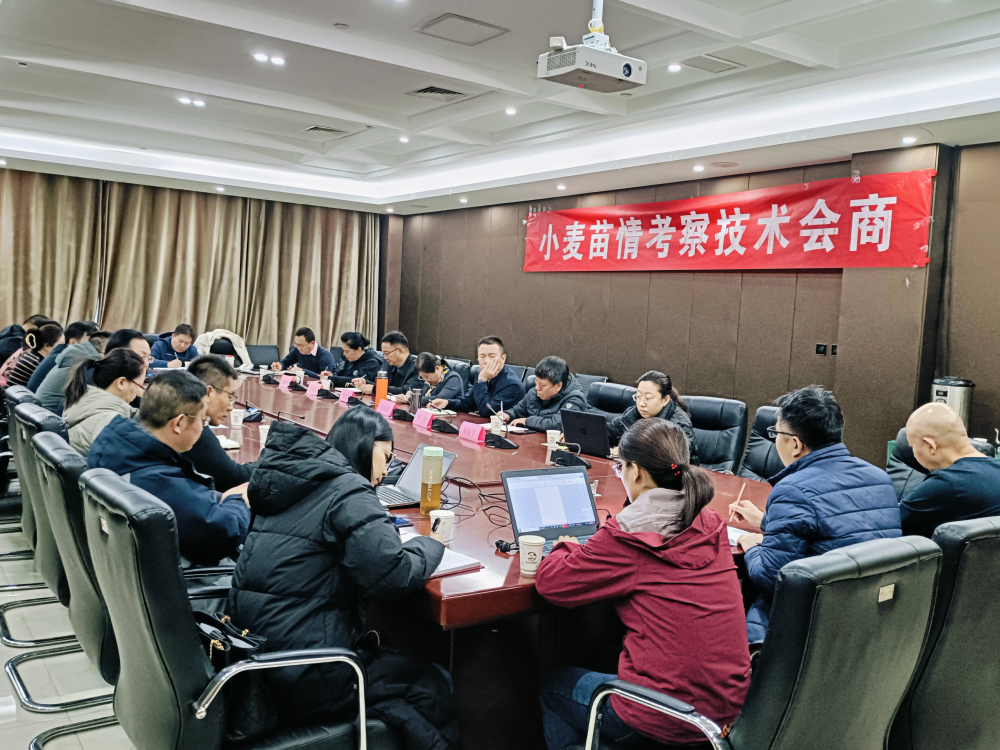In order to timely grasp the wheat seedling situation in various regions, accurately analyze the production situation, provide scientific basis for winter and spring management of wheat, ensure safe wintering and provide technical support for early spring management, from November 24th to 29th, 2023, the Institute of Cereal and Oil Crops, in conjunction with the Hebei Wheat Industry Technology System and the Provincial Agricultural Technology Promotion Station, formed an expert group to conduct wheat seedling inspections in 8 cities and 15 counties in Hebei, including Tangshan and Shijiazhuang.

The overall sowing quality and seedling condition of winter wheat in the province are better than usual, and technical measures such as deep plowing, compaction, and irrigation after water begins to freeze were well implemented. There were sporadic plots with insufficient soil moisture, thick dry soil layers, and weak seedlings. The wheat fields in northern Hebei (including Tangshan, Langfang, and northern Baoding) had entered the overwintering period, and the wheat fields in central and southern Hebei would also gradually enter the overwintering period. The main wheat fields in the province had a good sowing foundation, neat emergence, sufficient basic seedlings, good light and heat conditions after sowing, sufficient growth, and overall good seedling growth.

After the investigation, the expert group carefully sorted and summarized the situation of the wheat seedling investigation, and proposed technical suggestions for winter and spring management: (1) For wheat fields that have already been irrigated after water begins to freeze, no more measures needed to be applied before winter. In spring, it is necessary to timely suppress and control the flourishing of wheat. (2) For wheat fields with loose soil and first-class fields that have not been irrigated after water begins to freeze, field compaction can be carried out on sunny days to fill cracks, control growth, cultivate strong seedlings, and ensure safe overwintering of seedlings.(3)For late sowing weak seedling plots with good soil moisture, early management measures should be taken in spring to promote the transformation from weak to strong. (4) For wheat fields with insufficient soil moisture, it is necessary to irrigate according to weather conditions to ensure soil moisture and safe wintering; If the low temperature persists and it is not suitable to irrigate, timely field management measures should be taken when the weather gets warmer in spring, including maintaining soil moisture, applying fertilizer, controlling prosperity and promoting the transformation of seedlings from weak to strong.(5)Strengthen spring management in second- and third-class fields, and carry out soil compaction after wheat returning to green in spring. Increase soil moisture and temperature to promote early emergence of seedlings, rooting, transformation of seedlings from weak to strong. In addition, taking into account the soil moisture situation, water and fertilizer management should be carried out in the early stage to promote spring tillering, maintain individual stability, and increase population.

This provincial seedling investigation and technical consultation provided detailed data support for formulating wheat management suggestions, effectively ensuring the safe production of wheat in Hebei, which is of great significance.

(Source from www.hebnky.com)